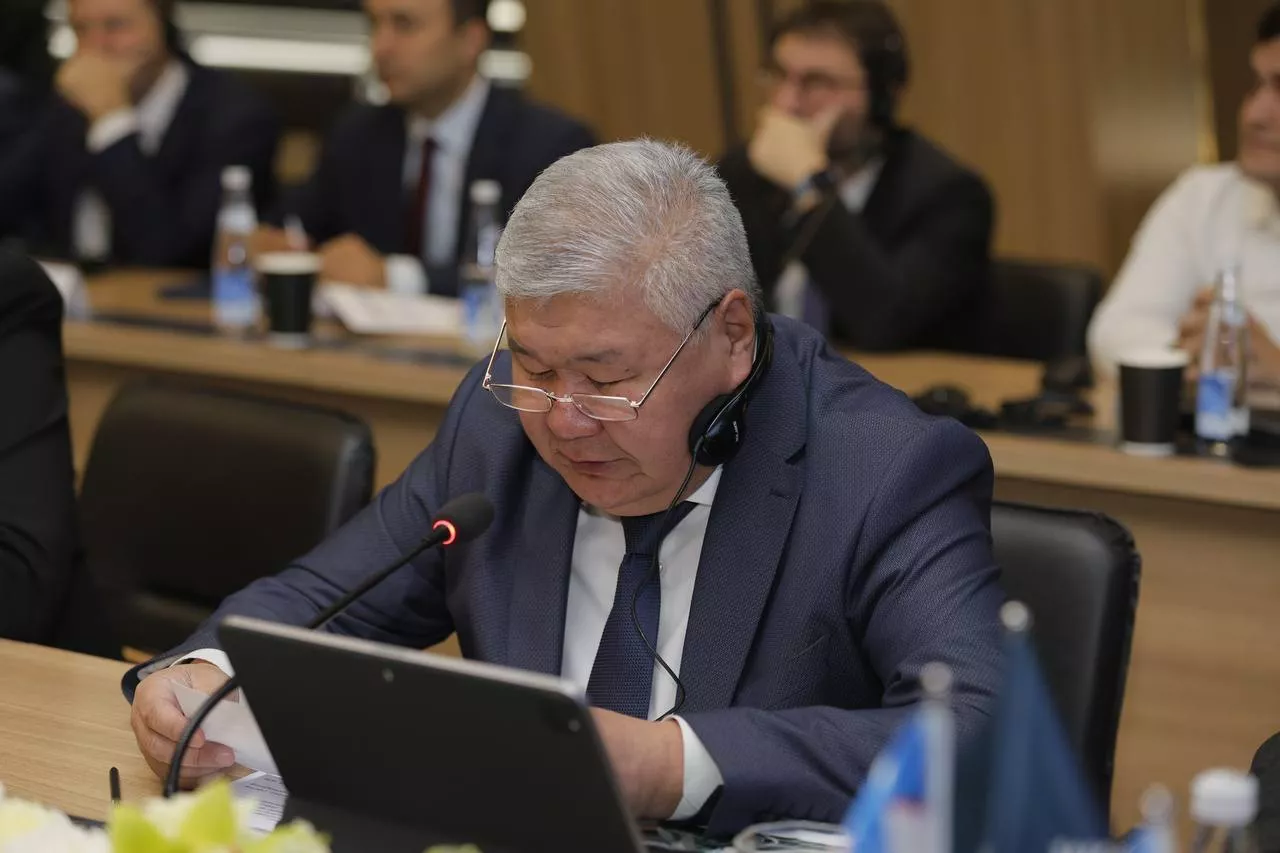
Published
01/27/2025, 20:34Today, January 27, a roundtable discussion was held in Tashkent with the participation of Kyrgyz Energy Minister Taalaibek Ibraev, Uzbek Energy Minister Zhurabek Mirzamakhmudov, and Kazakh Deputy Energy Minister Sungat Yesimkhanov.
The meeting was also attended by representatives of the World Bank, including Tatyana Proskuryakova, Regional Director for Central Asia, Carolina Sanchez-Paramo, Strategy Director for Europe and Central Asia, and Charles Cormier, Regional Director for Infrastructure.
The main point of discussion was the further development of the construction of Kambarata HPP-1 in Kyrgyzstan, which brings together the efforts of the three countries.

“In the Kyrgyz Republic, we call the construction of Kambarata HPP-1 “the project of the century”, given its huge potential to strengthen regional cooperation and contribute to the long-term development of the entire Central Asian region,” Taalaibek Ibraev said.
He noted that the roundtable in Tashkent continues a series of meetings that were previously held in Vienna, Brussels and Washington last year.
“These events contribute to the coordination and acceleration of the project implementation, as well as attracting the necessary international support,” the head of the Ministry of Energy emphasized.
The political will in the three states and a common understanding of the need to implement the project through joint efforts was emphasized by Kazakhstan's Deputy Energy Minister Sungat Yesimkhanov in his speech.
“Today's event is another confirmation of the strengthening regional cooperation in the water and energy sector. I am confident that the hydroelectric power plant on the Naryn River with a capacity of 1,860 MW will become one of the largest in Central Asia and will contribute to the further development of good neighborly relations between the countries of our region,” he shared.
In turn, Uzbek Energy Minister Zhurabek Mirzamakhmudov reiterated the commitment of the government of the republic to provide comprehensive assistance in the realization of this regional project, which is of strategic importance for the entire Central Asia.
“We are glad to host participants of the Kambarata HPP-1 construction project in Tashkent within the framework of the trilateral meeting. This project is under close attention of the leadership of our countries. We are confident that the project will bring significant benefits to all Central Asian states, strengthening regional energy security, accelerating the transition to a green economy and improving the use of water resources,” he said.
Recall, the parties have applied to the World Bank for assistance in the preparation and financing of the Kambarata HPP-1 construction project. Currently, the Kyrgyz side within the framework of technical support of the World Bank is carrying out comprehensive activities to update the feasibility study. This includes assessment of technical, economic, financial, environmental and social components of the Kambarata HPP-1 project, as well as the implementation of other key activities and studies necessary for its further implementation.
In her remarks, World Bank Regional Director for Central Asia Tatiana Proskuryakova reiterated the organization's readiness to support the governments of the three states in their efforts to secure a stable energy future for the region, accelerate economic growth and improve the quality of life of their citizens.
“We will continue to provide technical assistance in the implementation of the Kambarata HPP-1 construction project. Together with other international development partners, we are working to raise the financing needed to make the project a reality,” she said.
During the meeting, representatives of the energy ministries of the three countries reached an agreement on the key principles of joint development and implementation of the Kambarata HPP-1 project. The main stages were defined and the structure of the project implementation was approved. The parties also emphasized the importance of regular meetings at the ministerial level and with the participation of international donors to ensure coordination, cooperation and steady progress in project implementation.



